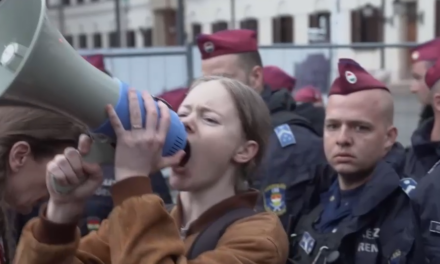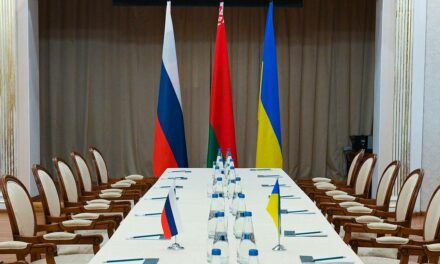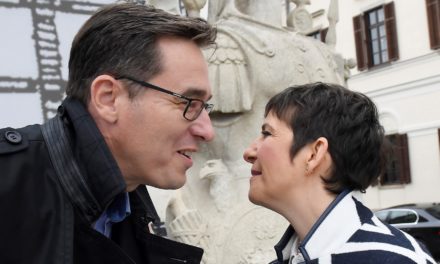It is unlikely that people staying in Europe with refugee status would easily want to give up this comfortable, well-adjusted and familiar Western European life.
The existence and religion of the indigenous people became secondary
The Willkommenskultur (that is, the "culture of welcome") and the failed European immigration policy implemented in parallel with it have plunged the European continent and the Western European countries with a liberal system into an unprecedented crisis. The tensions arising primarily, but not exclusively, from cultural and religious differences have inflicted extremely deep wounds on Europe in economic, social and security terms.
While the stability of Europe was threatened, the majority of refugees from the Middle East and Africa found themselves in a comfortable situation, often more favorable than the native European population, as a result of the extremely favorable social benefits of the liberal welfare states.
All this was coupled with a religiously based, self-sacrificing attitude on the part of the liberal decision-makers, which wanted to regard the Judeo-Christian churches that have historically defined Europe as a quasi "second-order religion" compared to Islam, just think of the anti-Christian manifestations experienced throughout Western Europe (e.g. desecration of churches ) or the acts of violence committed against the Jewish community in the past period.
All in all, it is therefore unlikely that persons staying in Europe with refugee status would easily want to give up this comfortable, well-adjusted and familiar Western European life in order to return to their country of origin.
The fact that European countries are announcing one after the other that they will stop accepting asylum applications from Syria after the overthrow of the Assad regime is not surprising in a legal sense, but they can be traced back primarily to political reasons. Pursuant to Article 1 of the 1951 Geneva Convention on Refugees, states must admit refugees temporarily, and as soon as the circumstances in connection with which the given person / group of persons were recognized as refugees cease to exist (e.g. security is in place in their country, or they voluntarily use their citizenship again the protection of their country) at the same time as the right to refugee status - to be precise, the Geneva applicability of the convention - also ceases.
It is also questionable what concrete steps the European countries can take to deport the planned hundreds of thousands of people home.
since it is an extremely complicated situation, which is burdened with not only political, but also legal, humanitarian, and above all practical obstacles.
Regarding the latter, it is enough to think that since the beginning of the 2015 migration crisis, masses of people have arrived in Europe without identity documents or other authentic identification documents. In addition, it also happens that the necessary documents are deliberately destroyed afterwards, and the cooperation of the countries of origin is not a matter of course. And all of these in themselves make otherwise lengthy procedures impossible or difficult. And then we didn't even talk about the interventions of the so-called human rights organizations.
Financially supported voluntary return programs and the conclusion of agreements with countries of origin can be considered as possible tools (see directive). But while the former imposes another burden on the European budget, a problem may also arise in connection with the latter, that in many cases the countries of origin bind such agreements to economic conditions, or are completely unwilling to readmit their citizens.
The applicability of the Geneva Asylum Convention ceases, but in vain if there is no readmission convention
With regard to its legal dimension, as mentioned earlier, the applicability of the Geneva Convention on Refugees ceases in relation to the person in connection with whom the right to obtain refugee status no longer exists. However, the convention no longer deals with the conditions of repatriation after the termination of refugee status or the specific rules related to the procedure.
Directive 2008/115/EC of the European Parliament and of the Council on the common standards and procedures used in the Member States regarding the return of illegally staying third-country nationals stipulates that the Member States must create horizontal rules that can be applied to all third-country nationals who are valid in a Member State does not, or no longer, meets the conditions for entry, residence or settlement.
Member States must ensure that the illegal stay of third-country nationals is terminated through a fair and transparent procedure. In accordance with the general legal principles of the EU, decisions made pursuant to this directive must be adopted on a case-by-case basis and according to objective criteria, which means that other aspects besides the mere fact of illegal stay must be taken into account.
In addition, the directive states that in order to facilitate the expulsion procedure, there is a definite need for bilateral readmission agreements between the Community and third countries. Finally, the Directive recognizes that Member States have the right to expel illegally staying third-country nationals, provided that they operate a fair and efficient asylum system that fully respects the principle of non-refoulement (by implication, in the case of eligibility for refugee status).
Finally, in the light of the latest developments, it is worth recording that
states have the sovereign right to decide who is allowed into their territory, and also that refugee status is not equal to the right of permanent settlement.
Source: Alaptorvenyblog.hu
Cover image: MTI Photo: Balázs Mohai













